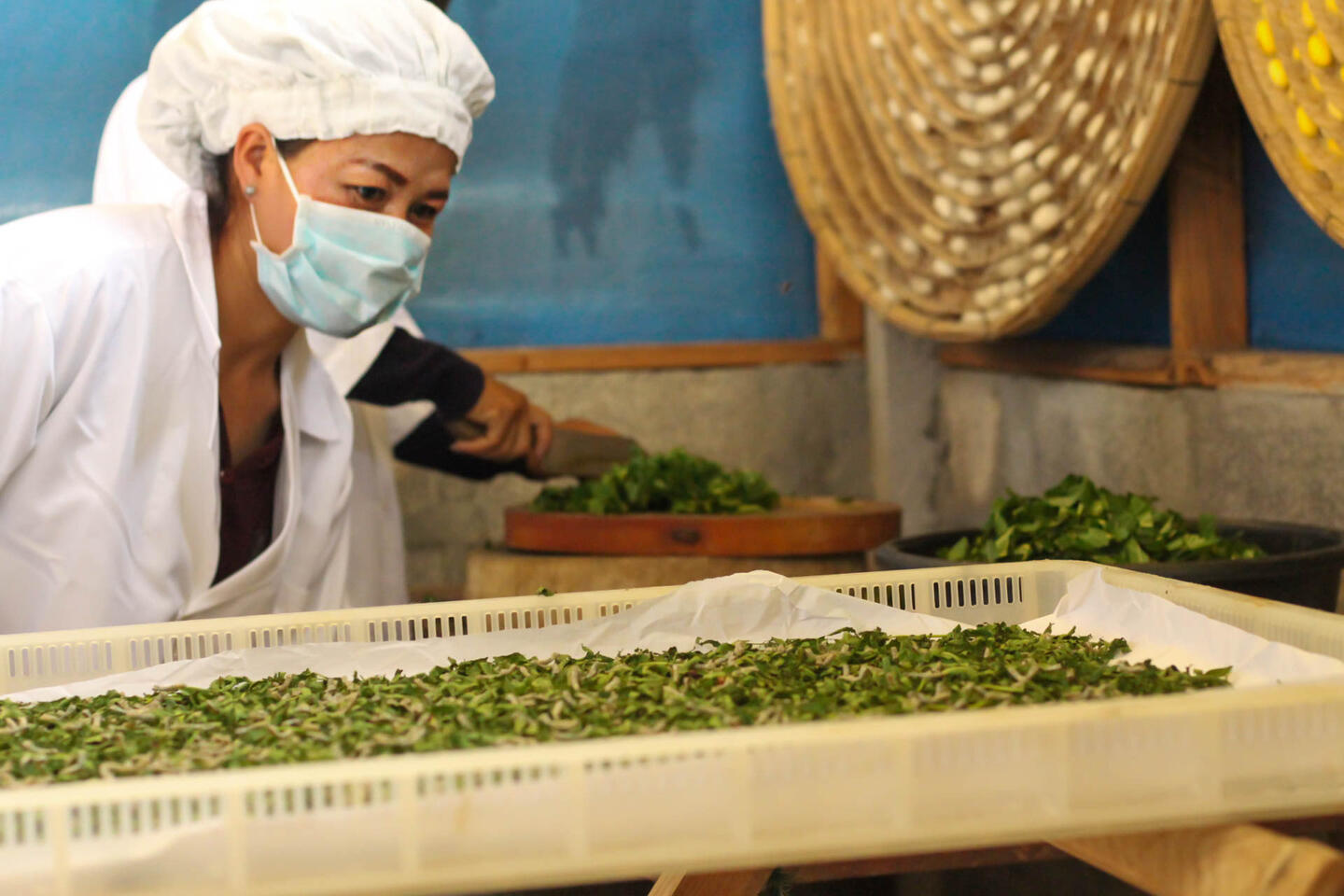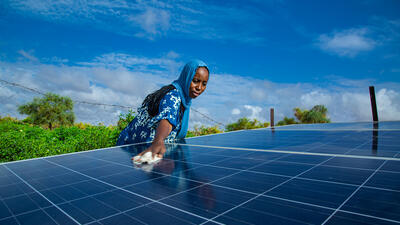
Activating green trade, advancing environmental goals
Why doing good is also good for business
Trade is traditionally seen as a contributor to climate change – for example, through transport emissions and increased economic activities.
But trade, when done sustainably and backed by the right policies, is actually a powerful tool to meet both environmental and economic goals.
Not only large, multinational companies can benefit from trading sustainably, but also small businesses can become more resilient and seize new market opportunities.
With small businesses generating around 50% of jobs and greenhouse gas emissions, supporting them on their journey to ‘go green’ is essential for both developmental and environmental impact.

ITC launched its GreenToCompete initiative in 2020 – reinforcing its commitment to trade that is climate resilient, fosters a new bio-economy and promotes production cycles that are truly circular.
ITC 's GreenToCompete goals:
- Strengthening local capacity to manage climate related risks,
- Promoting the reduction, reuse and recycling of resources,
- Harnessing opportunities from the bio-economy to restore and conserve biodiversity.
As environmental challenges will increasingly impact small businesses, collaboration and joint action are key.
GreenToCompete “activates” different types of stakeholders: We build the capacity of people working in small businesses, support institutions and those of young ecopreneurs.
We work with enablers, such as service and technology providers, or with finance and market partners who either provide supporting services to small businesses or offer access to growing sustainable markets. And we work with policymakers to create enabling business ecosystems in which companies can go green.
From ‘green to survive’ to ‘green to thrive’
There are many good examples of small businesses that turned environmental sustainability into their competitive advantage. For example, through ITC’s GreenToCompete Hub in Kenya, we worked with companies like Miyonga, who managed to access green finance to realize their business plan.
Their secret? Innovation! Miyonga presented a strong business case for a solar-powered mobile factory that reduces post-harvest losses and energy consumption, which helped them secure funds from an international financier. So green business does indeed open new finance streams.
Ecopreneur Sofia Rubio, on the other hand, turned nature conservation into the profitable business Shiwi, marketing sustainable products from natural protected areas in Peru (see more in upcoming Features).

To ensure long-term collaboration with companies and other stakeholders, GreenToCompete established local hubs in several countries, including the Caribbean, Ghana, Kenya, Lao PDR, Nepal, Peru and Viet Nam. These Hubs are collaborating and sharing experiences through a global network, to further grow in the coming years.
GreenToCompete is also working with international buyers and suppliers in their international value chains. The initiative is currently developing an online platform to enable even more learning and exchange opportunities.
The year of 2021 in particular, has offered a variety of opportunities to align the trade, development and environment agendas. The upcoming Climate Change Conference of the Parties (COP26) and the WTO 12th Ministerial Conference are just two occasions that set the stage for accelerating ways through which the world can reach the goals of the Paris Agreement – and for enabling small businesses to thrive by ‘going green’.
Join our activation network and contribute to the change you want to see! Contact: GreenToCompete [at] intracen.org (GreenToCompete[at]intracen[dot]org)











